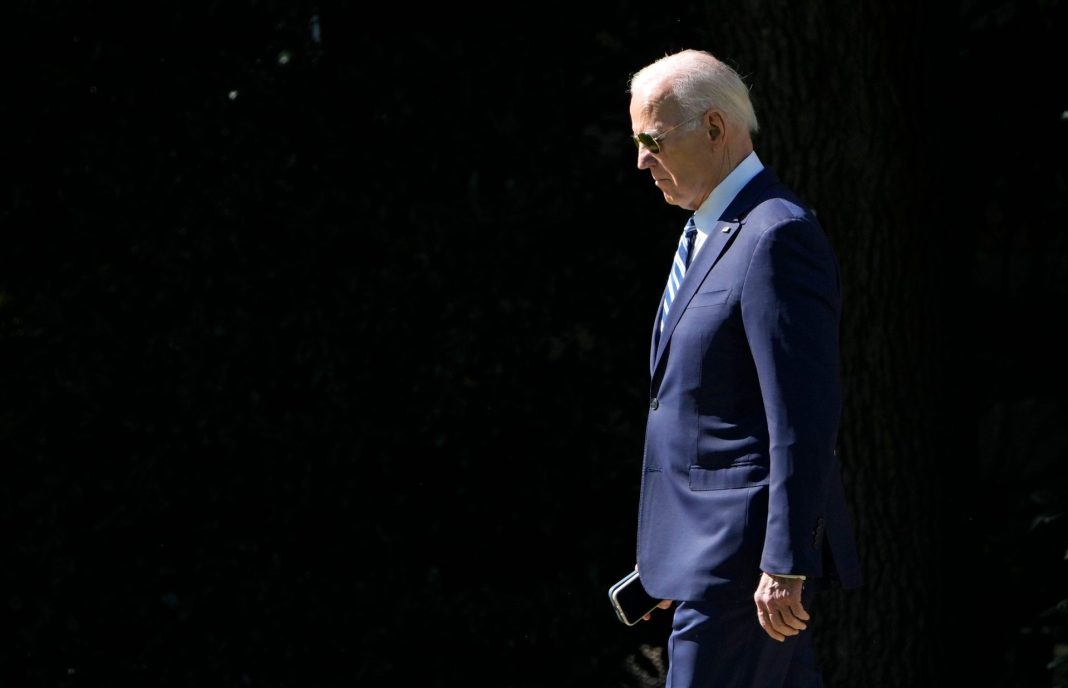The cable stresses profound concern among American officials about the growing anger against the United States that erupted soon after Israel launched its operations against Hamas.
“We are losing badly on the messaging battlespace,” reads a cable from the US Embassy in Oman, citing conversations with “a wide range of trusted and sober-minded contacts”.
The robust US support for Israel’s actions is being seen, the cable warns, “as material and moral culpability in what they consider to be possible war crimes”.
The cable from the embassy was written by the second-highest US official in Muscat and sent to, among others, the White House’s National Security Council, the CIA and the FBI. While it’s just one cable from a regional embassy, it provides a private snapshot of the alarm over the growing anti-US wave sweeping the Middle East.
Another cable obtained by CNN from the American embassy in Cairo relayed back to Washington, as part of a daily media summary, the commentary in a state-run Egyptian newspaper that “President Biden’s cruelty and disregard for Palestinians exceeded all previous US presidents”.
Biden has been under growing pressure domestically and abroad over US support of Israel amid images of destruction in Gaza and the dire humanitarian crisis in the region. While the administration has resisted calls for a ceasefire, officials have worked to ramp up aid going into Gaza and pushed for humanitarian pauses to allow more assistance to flow into the enclave and to allow civilians to flee away from the fighting.
In recent days, US allies in the Arab world have made clear their deep anger at the humanitarian crisis in Gaza.
Last weekend, Secretary of State Antony Blinken attended a summit convened by the Jordanian foreign minister that was attended by the top diplomats from Egypt, Qatar, the United Arab Emirates, and Saudi Arabia, as well as the secretary general of the Palestine Liberation Organization.
At the summit, the Arab leaders called for an immediate ceasefire in Gaza while Blinken reiterated US opposition, arguing that it would give Hamas time to regroup and launch another attack on Israel.
The White House announced Thursday that Israel had agreed to move forward with daily four-hour pauses of military operations in areas of Northern Gaza.
Blinken had an agreement in principle on the pauses after his meetings in Israel last week, even though Prime Minister Benjamin Netanyahu came out against the idea of humanitarian pauses on Friday, US officials told CNN. That was seen as the Israeli prime minister playing to his coalition, and the officials noted it was similar to when the Israeli government opposed humanitarian aid getting into Gaza before deciding to allow it.
Although Israel had already been instituting such pauses, American officials see this agreement as progress because the Israelis are using the language of “pauses”, which is something the US believes it can build on.
Still, within the administration, concerns have grown over US support for Israel.
CNN previously reported that some senior officials privately say there are aspects of Israel’s military operations they simply cannot stomach defending; calls for the US to back a ceasefire are growing among government employees; and others are distraught by the incessant images of Palestinian civilians being killed by Israeli airstrikes.
Biden has also been confronted by the frustration growing domestically.
The president was confronted by a protester calling for a ceasefire at a private fundraiser last week; pro-Palestinian protests have been a daily occurrence near the White House compound; and this week, one of the entrances near the West Wing was covered in bright-red handprints – meant to mimic blood – and words like “genocide Joe.”
